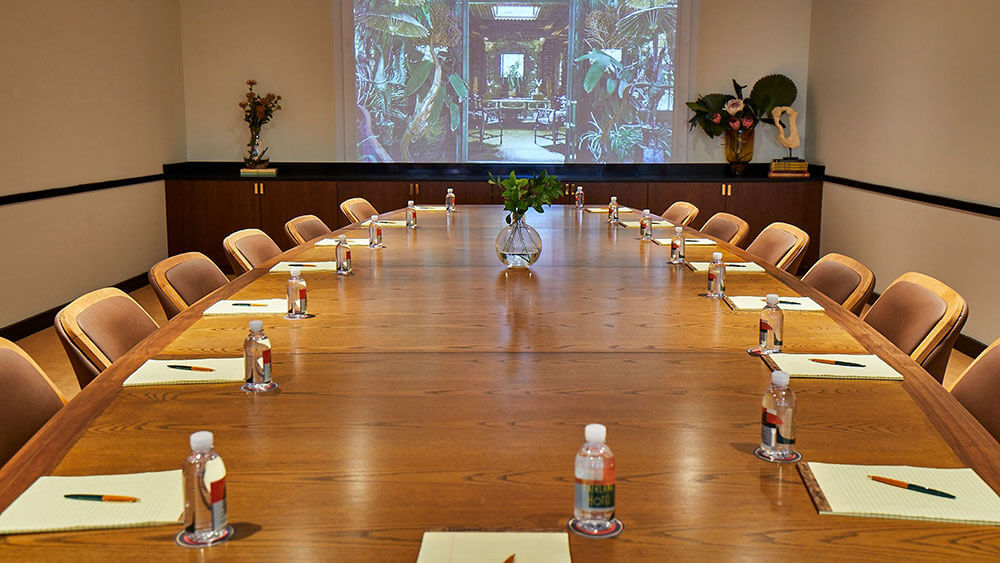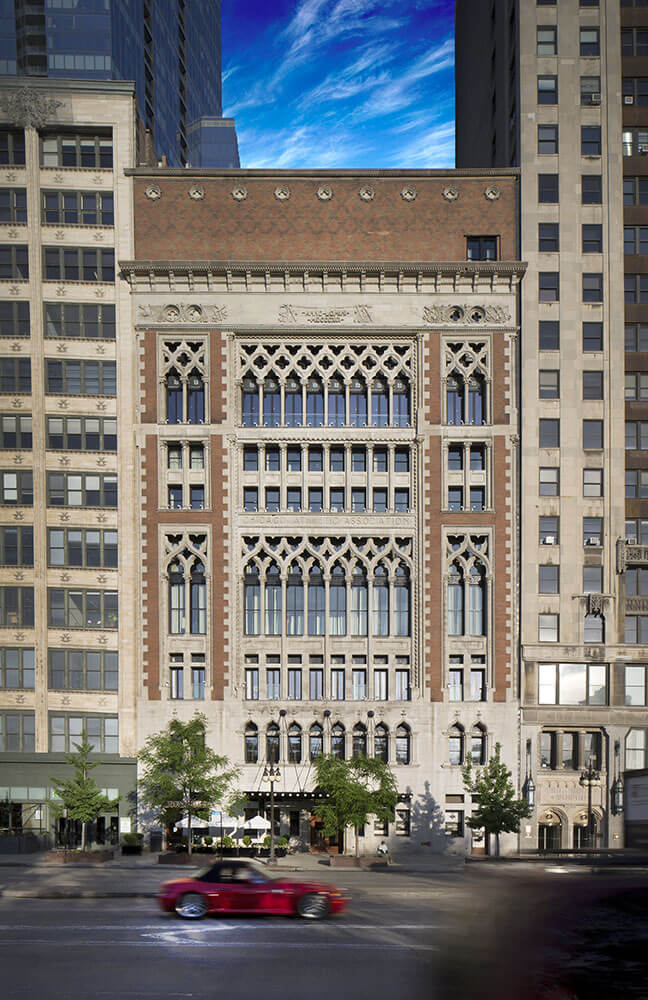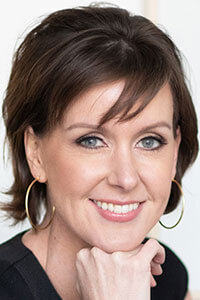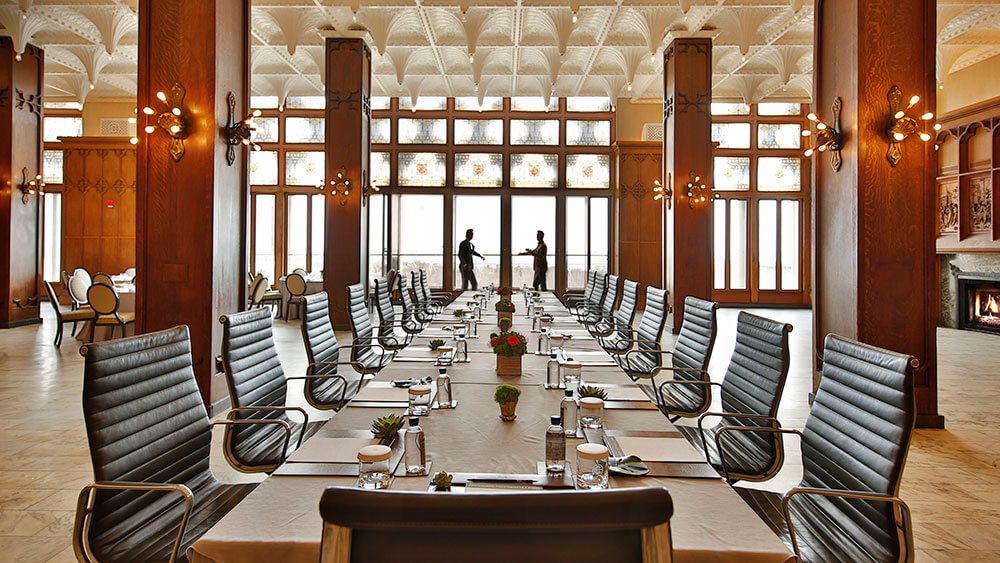
Getting event planners’ attention can be a challenge for independent properties like The Fairlane Hotel in Nashville.
A quick look at Cvent’s most recent list of Top Hotels for Meetings in the U.S. doesn’t reveal any big surprises. Marriott, Sheraton, Hilton, Hyatt, and other major chains dominate the rankings for properties that stood out in 2019. According to numbers from Lodging Econometrics, the future stock of hotel rooms is similarly allocated among Marriott, Hilton, and InterContinental Hotels Group, which together have more than 1 million rooms in the development pipeline. As the biggest hospitality brands grow even bigger, what does the landscape look like for the boutique and independent properties?
Quite a bit smaller, says Will Sanford, a research analyst at STR. “If you were to look across the American hotel scene in 1990, you would find that nearly two-thirds of hotels were independently owned and operated,” Sanford wrote in Hotel News Now in the spring of 2019. “Today, independents account for less than 40 percent of all hotels.”
Both Sides of the Story

The Chicago Athletic Association, a former elite men’s sports and social club, began welcoming guests and group business as a hotel in 2015.
Those independent properties are holding their own, though. Some are taking an if you can’t beat them, join them approach to competing in today’s business environment. Consider the Chicago Athletic Association, a former elite men’s sports and social club that began welcoming guests and group business as a hotel in 2015. The property opened under Commune Hotels and Resorts Management before the company merged with Destination Hotels, which eventually became Two Roads Hospitality.
Despite going through all those hands, one thing remained constant, said Elizabeth Story, director of sales and marketing at the property: the challenges of distribution for an independent hotel. That changed in November 2018 when the property joined The Unbound Collection by Hyatt. Story told Convene that lead generation feels much easier today.
“Most of the leads are sourced through Cvent,” Story said. “Now, when clients are searching and they are brand-loyal, we come up in their parameters.”
In addition to standing out in digital searches, the human element has increased exponentially. “We have the leverage of a massive salesforce,” Story said. “We only had five national sales managers previously, and that count is around 170 now. From a group standpoint, we’re getting a lot more exposure to new clients.
“Hyatt has bigger buying power,” she added. “We had never been able to play in the sandbox of master service agreements. None of the Fortune 500 companies wanted to go through the process [of developing that agreement] before.”
‘A Lot Less Standardization’
While pre-negotiated terms eliminate potential hiccups that might come from lengthy back-and-forth contract revisions, Graham Harlin, director of sales at The Fairlane Hotel, an independent property in Nashville, told Convene that the opposite also is true: Hotels like hers are in a position to make contracts more appealing to planners.
“There is a lot less standardization,” Harlin said. When she worked at a national brand, she said, she “used to know exactly what my contract looked like from a legal perspective.” At The Fairlane, it’s more of a case-by-case evaluation of group business. “There is a lot less red tape,” she said, “that allows us to be more flexible with contract terms and attrition.”
While that is a benefit, Harlin acknowledged that getting the property on a planner’s radar is not a simple task. “Distribution is always going to be a challenge,” Harlin said. “We’re not a collection of hundreds of hotels across the world.”
In the Independent Corner
Danielle Bishop founded HB Hospitality to start a different kind of collection, designed to facilitate connections between meeting planners and the sales representatives at luxury independent properties like The Umstead Hotel & Spa in North Carolina and The Faena in Florida. More than 100 properties pay an annual membership fee (prices vary across four tiers of membership) to gain access to HB’s online community and to participate in the company’s face-to-face- focused networking events. Each of the properties in HB Hospitality’s collection is unique, Bishop said, but one thing they share in common is the lack of a strong global sales infrastructure.

Danielle Bishop
“These independent hotels do not have the shared database that we have,” she said. “It is incredibly difficult for them to stay up to date on the appropriate contacts,” she said, noting that in her experience, the turnover for key decision-makers for meetings is around 30 percent each year. “So we spend time researching, reviewing tens of thousands of records, and reaching out to individual contacts a few times each year to keep our information current.”
Independent properties have more opportunities to attract leisure guests, but Bishop finds that “they really struggle to create awareness about their potential for groups.”
“Most of them can only respond to inbound inquiries,” she said. “Finding the right person in the group world is like finding a needle in a haystack. It might be the executive assistant to the CEO, the VP of sales, or someone in the meetings department. It’s different at every organization. Our aim is to give them a way to cut through the clutter.”
Bishop said her company has another benefit for planners: transparency about the money trail. While many contracts are signed in the meetings industry without a clear understanding of who’s getting a commission and how that is structured behind the scenes, HB is upfront about how the company makes money — through the hotels’s membership fees. “We are all about transparency and efficiency,” Bishop said. “I feel it’s kind of messed up that the decision-making meeting planner doesn’t always understand what back deals are happening. They should be the ones in control.”
The Power of Points
Being in control is also important, it turns out, to event attendees when it comes to their hotel choice. The Room Block of the Future study — research supported by the PCMA Foundation, Hilton, and NYC & Company that included surveying 750 convention attendees on their booking behaviors — revealed that attendees want to choose accommodations at conferences and trade shows their own way. “It was very unexpected to learn just how much it bothers [city-wide event attendees] to lose control of their hotel-booking process and being generally unable to do the things they normally do in hotel bookings,” said Elaine Hendricks, partner at Prism Advisory Group and one of the research consultants in the study. That includes, she said, accessing their loyalty benefits.
Travelers gravitate toward earning automatic status upgrades and seeing those loyalty rewards points add up, and Story said that Chicago Athletic Association’s ability to dole out those World of Hyatt points has been a difference-maker for some guests. “We had never been able to offer points, and we didn’t have a loyalty program,” she said. “Now we can, and people are very excited about it.”
Independent hotels, with a range of price points, processes, and target audiences, struggle to offer any kind of currency that lets planners and attendees earn points for their business. Jennifer Cawley, JD, executive director of the Texas Association of Life & Health Insurers, acknowledged that loyalty programs can be a factor for individual attendees, particularly those who travel frequently. She referenced a comment on a post-meeting survey from an attendee who wished that the group would have stayed at a property with points-earning potential. However, she said that kind of feedback is “the minority for our group.”
Cawley, who has the final say in where to host the group’s meeting, said that independent and boutique properties like the Hotel Emma in San Antonio — a 19th-century brewhouse that has been transformed into a 146-room hotel — “provide the opportunity to create a unique or unusual experience.” And that is something her group values.
In addition, because Cawley’s gathering is usually around 100 people, including staff, “our size makes us a nice fit because we don’t always need a large amount of space. We get a lot of positive feedback on the hotels we choose.”
Bishop thinks that independent properties’ ability to offer the novel experiences that groups like Cawley’s enjoy can offset the desire to rack up those points. “Independent properties are built around passion and unique experiences,” Bishop said. “Many of them are built by someone who poured their passion for a certain lifestyle into the design to share it with the world. Big brands have an incredibly hard time doing that. That kind of creativity needs space to bloom and blossom. It can’t be harnessed in a board room or by private equity demanding a certain level of return.”
Indies Team Up
While The Fairlane is an independent property, Director of Sales Graham Harlin said its strategy has been to join forces with other similar-sized neighbors when necessary. The property is located next to three other small hotels, and that proximity means that meeting planners can choose to offer a few different options for attendees instead of one large headquarters hotel. “Because we only have 81 rooms, we may not be able to attract some of those larger groups,” she said, “so sometimes, we come together with some other boutique properties to combine our offerings.
“There is competition among us,” Harlin added, “but there is also a supportive community that refers business to each other and works to compete with the bigger properties when big conferences come to town.”

Chicago Athletic Association hotel is now part of The Unbound Collection by Hyatt.
Boutique Branding
The number of independently owned-and-operated hotels may be shrinking, but an emerging generation of guests appreciates the kind of unique design those independent hotels may offer. According to a study of 1,000 18-to-34-year-old hotel guests commissioned by U.K. furniture maker Knightsbridge, 87 percent of respondents cited interior design as important when choosing a hotel. Big brands are taking notice.
Instead of splashing their name across the walls, though, they’re opening soft-branded boutique properties that look and feel closer to the authentic design touches found in many independents. Marriott’s Autograph Collection, Hilton’s Curio Collection, InterContinental Hotel Group’s Kimpton, and Hyatt’s Unbound Collection are some of the examples of big brands keeping a low profile.
For properties like the Chicago Athletic Association that had previously operated outside of a brand, it can be the best of both worlds. “Deep down, we are still the same hotel,” said the property’s director of sales and marketing, Elizabeth Story. “The Unbound Collection is a collection of independent hotels that can each do what’s right with their business and maintain their own unique brands.”
David McMillin is an associate editor at Convene.
